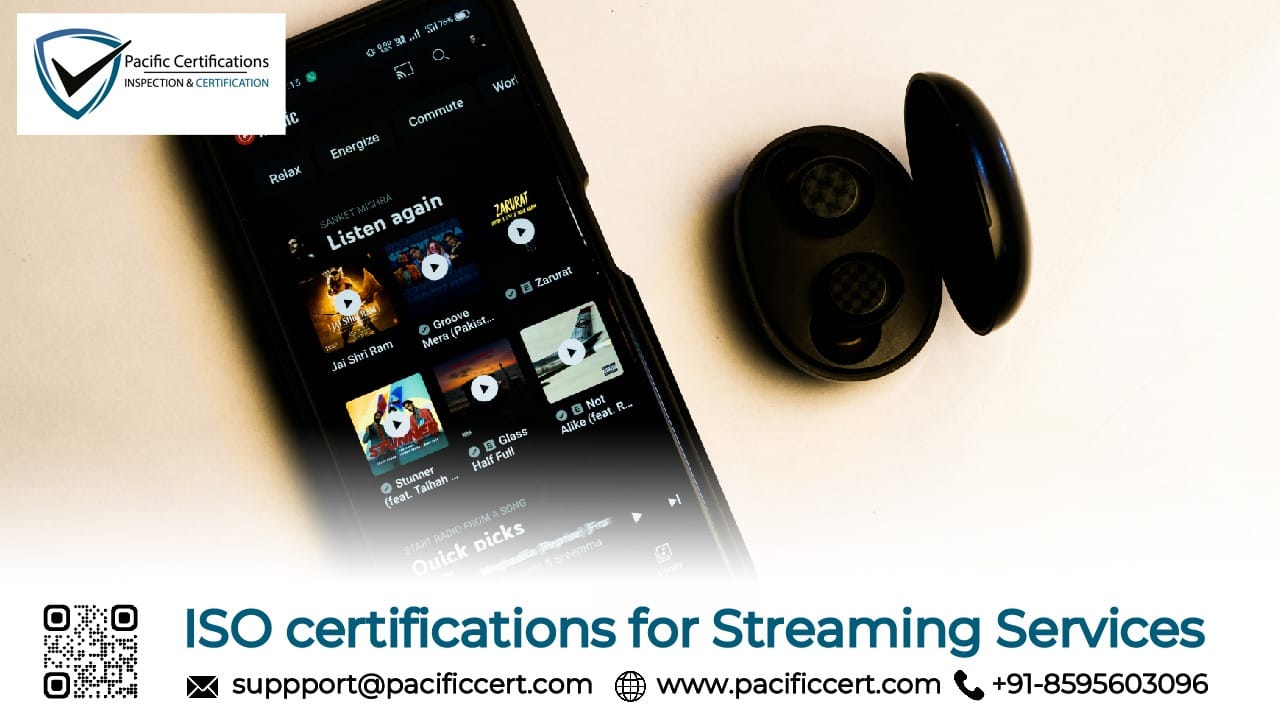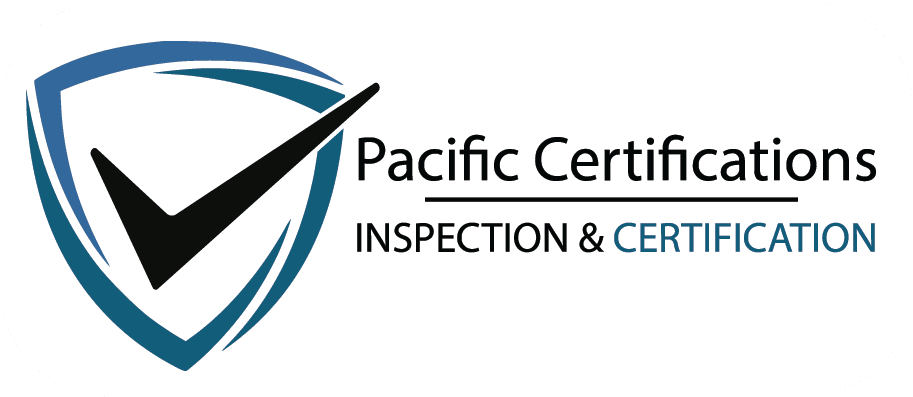ISO Certifications for Streaming Services, Requirements and Benefits

Introduction
Streaming services have completely changed how people watch movies, listen to music, and follow live events. From global platforms like Netflix and Spotify to regional apps that promote local creators, the entire industry depends on stable technology, user trust, and data protection. When millions of users are streaming at once, even a brief service outage or security issue can harm reputation and customer confidence.
In this fast-moving digital space, ISO certifications bring structure and credibility. They help streaming channels to show that their systems are secure and consistent in performance. Above all, these standards act as a shared language of trust between the platform and its audience.
Trust isn’t built by flawless code or perfect uptime. It’s built when users know their data, their privacy, and their experience are in safe hands every time they press play
Quick Summary
Streaming platforms operate in a world where speed, security, and trust define success. ISO certifications give these businesses the structure to deliver consistent quality and recover quickly from disruptions. From ISO/IEC 27001 for cybersecurity toISO 9001 for quality, these standards help streaming companies prove that their services are reliable and sustainable. In short, ISO certification builds confidence among users, investors, and technology partners worldwide.
Applicable ISO Standards for Streaming Services
For streaming service providers, there are several ISO standards that may be relevant to ensure the quality, security, and effectiveness of their services. Here are some of the key ISO standards that can apply:
ISO 9001: Quality Management System (QMS): ISO 9001 is a widely recognized standard that focuses on establishing a quality management system within an organization. It helps ensure that your processes for content delivery, customer support, and other operations meet high-quality standards.
ISO 27001: Information Security Management System (ISMS): ISO 27001 is crucial for streaming services as it addresses information security risks. It helps in safeguarding sensitive customer data, ensuring the confidentiality, integrity, and availability of content, and protecting against cyber threats.
ISO 20000-1: IT Service Management (ITSM): This standard focuses on IT service management and can be applicable to streaming service providers that rely heavily on IT infrastructure. It helps in improving the efficiency and effectiveness of IT service delivery.
ISO 22301: Business Continuity Management System (BCMS): For streaming services, ensuring uninterrupted service is crucial. ISO 22301 helps in establishing a robust business continuity plan to minimize downtime during disruptions or disasters.
ISO 14001: Environmental Management System (EMS): If your streaming service has environmental impacts, such as energy consumption in data centers, ISO 14001 can be relevant. It helps in managing environmental aspects and reducing the environmental footprint.
ISO 45001: Occupational Health and Safety Management System (OHSMS): Ensuring the safety of employees involved in content creation, IT operations, and customer support is vital. ISO 45001 focuses on occupational health and safety, reducing workplace risks and promoting a safe working environment.
ISO 31000: Risk Management: Managing risks, including legal and compliance risks, is essential for streaming services. ISO 31000 provides guidelines for establishing a risk management framework.
ISO 27017 and ISO 27018: Cloud Security Standards: If you're using cloud services for content storage or delivery, these standards provide guidance on cloud security controls and protection of personally identifiable information (PII).
Click here to find out more applicable standards to your industry
Feel free to contact Pacific Certifications at [email protected] for personalized assistance and more information on ISO certifications for your streaming service.
What are the requirements of ISO certifications for Streaming Service providers?
To achieve ISO certification, streaming companies need to meet the following requirements:
Define organizational scope covering streaming infrastructure, servers, and digital assets.
Establish and maintain documented management systems (policies, SOPs, risk registers, records).
Conduct risk assessments for cybersecurity, content availability, and privacy vulnerabilities.
Implement controls and monitoring mechanisms aligned with ISO clauses.
Maintain incident response plans and continuity procedures for service disruptions.
Carry out internal audits and management reviews regularly.
Train staff and contractors on information security, privacy, and service quality.
Undergo external audits by an accredited certification body
Tip: Start with ISO/IEC 27001 to secure data and systems, then build on ISO 9001 for consistent streaming quality and user satisfaction.
What are the benefits of ISO Certifications for Streaming Service Providers?
ISO certification helps streaming companies manage data securely, maintain service reliability, and build lasting trust with users. It also strengthens internal systems and supports sustainable growth.
Key benefits include:
It protects user information and keeps data safe from cyber threats.
It reduces downtime and ensures the platform runs smoothly.
It builds customer confidence by showing consistent service quality.
It aligns the platform with international compliance and privacy laws.
It improves brand credibility and helps attract new partners or investors.
It supports energy-efficient operations in servers and data centers.
It helps teams identify and manage potential risks before they escalate.
It promotes accountability and structured performance improvement.
It enables streaming providers to expand confidently into global markets.
The global streaming market is growing rapidly, valued at about USD 247 billion in 2025 and expected to reach nearly USD 787 billion by 2035, driven by expanding internet access, cloud adoption, and AI-based personalization. Live streaming and OTT platforms are leading this growth with double-digit annual rates, while ad-supported models are gaining favor, more than two-thirds of users now prefer free, ad-backed options.
Platforms like Netflix have seen over 90 million users on ad-supported tiers, and streaming now accounts for almost 45% of total TV viewing in major markets. With this growth, issues like data security, uptime, and privacy management have become critical. ISO certifications such as ISO/IEC 27001, ISO 9001, and ISO 22301 help streaming companies ensure consistent service quality and maintain trust across global markets, turning compliance into a clear marketing advantage.
How Pacific Certifications can help
Pacific Certifications, accredited by ABIS, provides independent and globally recognized ISO certification services for streaming and digital media companies. Our role is to audit, verify, and certify that your management systems meet the requirements of international ISO standards.
Here’s how we support your certification process:
We conduct Stage 1 and Stage 2 certification audits to verify compliance with the selected ISO standards.
Our auditors review your documented processes and assess real-world implementation
We issue accredited ISO certificates valid for three years
Our scope covers key standards such as ISO/IEC 27001, ISO/IEC 27701, ISO 9001, ISO 22301, ISO 20000-1, ISO 14001, and ISO 50001.
We help your platform strengthen data protection, service quality, and operational resilience through accredited certification.
If you need support with ISO certification for your Streaming business, please contact us at [email protected] or +91-8595603096.
Author: Sony
Read about: ISO Certifications for Software as a Service (SaaS), Requirements and Benefits
